Why did the World Bank and IMF come under fire from Guterres?

National leaders who were former allies often experience a fallout and fight each other. In Ancient Rome, Marcus Junius Brutus, an ally and reputedly best friend, eventually joined the rebellion against Julius Caesar and conspired to assassinate him in the Senate. Only last month, the Russian warlord Yevgeny Prigozhin, leader of the private army known as the Wagner Group, and a sworn friend of Putin and the Russian Republic, decided to turn the table on the Russian leadership and launched a coup against his former patron.
Now comes the news of a feud between three erstwhile allied entities working in the international arena: the UN, the World Bank (WB), and the Internal Monetary Fund (IMF). All three bodies emerged from the ruins of the Second World War and benefitted from the poverty alleviation efforts of the last 7.5 decades. Now, the UN Secretary-General has fired the first salvo against the WB and IMF for their deficiencies during the pandemic, but also for their failure to lift the world out of poverty (and all the other things that went wrong, including climate change, the debt crisis, and the general sense of doom and gloom in the global economic outlook).
The backdrop for this latest round of bickering is the meeting in Paris where, between June 22 and 23, about 100 international organisations and 50 heads of states gathered to discuss how to build a more responsive, fairer, and more inclusive international financial system to "fight inequalities, finance the climate transition, and bring us closer to achieving the Sustainable Development Goals". The goals announced by the newly formed Paris Summit group are to create a world "where poverty is eliminated and the planet preserved; where vulnerable countries are better equipped to face the crises from climate change and conflicts." The next paragraph then takes a dig at the current World Bank/IMF superstructure: "We will transform the governance of the international financial architecture to make it more efficient, more equitable, and for the world of today".
Why does this internecine dispute between the UN and the WB/IMF look so odd? First, these three entities come from the same breeding stock. The World Bank and the IMF have provided loans for poverty eradication and temporary financial assistance to countries to help ease balance of payments adjustment. The UN had a broader charter, and its area of work in helping to eradicate poverty, reduce inequalities, and build resilience so countries can sustain progress had a symbiotic relationship with the Bretton Woods bodies.
Secondly, Guterres' missives come on the heels of the most recent UN and the World Bank agreement, known as the Strategic Partnership Framework (SPF), which covers 2019 to 2023 and includes four key areas of cooperation: finance and implementation support to help countries reach the Sustainable Development Goals (SDGs); decisive global action on climate change; joint work in post-crisis and humanitarian settings; and harnessing data to improve development outcomes.
The two institutions pledged to cooperate in finding financial and other necessary resources to help countries achieve the SDGs and harness data to improve development outcomes. These initiatives include mobilising increased and better finance from all sources, including through domestic resources, and helping countries attract and manage private capital; improving implementation capacity to achieve the SDGs; promoting joint action and investment to improve infrastructure and build human capital; convening governments, financial institutions, private investors, and development banks to mobilise, coordinate, and deliver financing to help countries make the transition to a low-carbon, resilient future; and strengthening collaboration and joint action in post-crisis and humanitarian settings to build resilience.
Unfortunately, all of these are still but wishful thinking. Antonio Guterres seized the opportunity and used the appointment of the new WB chief, the Paris conference, and the stalemate in the Russia-Ukraine war to push his agenda.
As we know, the G7 and European Union member states control more than 50 percent of all votes at the World Bank, even as they represent under 13 percent of the global population. Non-G20 emerging markets and developing countries (EMDEs) are witnessing slow recovery from the pandemic and "supply chain" problems that have plagued these countries the last few years. And one cannot deny the disappointing trends on poverty, climate emissions, and other SDG outcomes. In 2015, when the SDG agreements were reached, there was an expectation of an uptick in the pace of development. Halfway through the SDGs, it is clear that most countries will not come close to meeting SDG targets under current trends.
The UN Secretary-General appears frustrated for three reasons: 1) The progress on SDG goals is lagging; 2) UN's climate goals have lost traction in the aftermath of Covid-19 and the war in Ukraine; and 3) the appointment of the new head at the World Bank, Ajay Banga, unnerved the UN and its partners (who are concerned about poverty eradication and climate change mitigation). Some insiders in the Guterres camp are worried that "the predatory-finance background" of Banga will threaten the UN goals.
But it is not clear where the funding necessary for the lofty goals of the Paris Summit group will come from. According to a Brookings Institution study, international "investments should rise to $5.9 trillion by 2030, compared to $2.4 trillion set in 2019. Most incremental finance will need to come from domestic sources, but at least $1 trillion in annual incremental external financing will be needed." The WB harbours an ambition to become a $1 trillion bank by 2030. Scaling up to this degree (roughly a threefold expansion) requires a change in its operational model, as well as in its finances.
The new WB head arrives at a time of growing enthusiasm within the US and other G20 nations for the "reform of international financial institutions" and also at a "moment of significant economic upheaval". However, critics point out "the preponderance of countries that implemented SAP experienced higher levels of poverty, mass unemployment, and increasing external debt levels," where SAP refers to Structural Adjustment Program, a policy package pushed by the Bank.
Another source of growth, international trade, fell by 0.9 percent in the first quarter of 2023, following a decline of two percent in the final quarter of last year. And now there is a global manufacturing recession.
The UN chief is aware that the US has to be on board. A US Treasury official told AP that big new monetary pledges should not be expected from the Paris Summit – rather it's viewed as a chance to push for an evolution of the development banks.
Since reforms in the three bodies will take a lot of work and could be gradual, it would be somewhat reckless to offer any cut-and-dried solutions. Over the years, many insiders and outsiders have come forward with ideas to restructure these institutions, and one can only hope that both the stakeholders (including the US, China, Russia, and the G20 countries) and other smaller EMDEs can reach a consensus on how to turn the ships around.
Dr Abdullah Shibli is an economist and works for Change Healthcare, Inc., an information technology company. He also serves as senior research fellow at the US-based International Sustainable Development Institute (ISDI).

 For all latest news, follow The Daily Star's Google News channel.
For all latest news, follow The Daily Star's Google News channel. 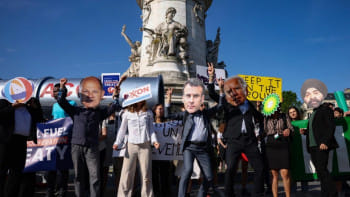
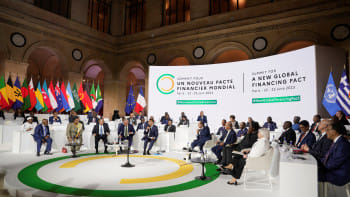
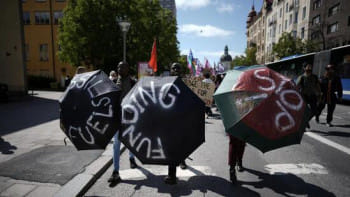
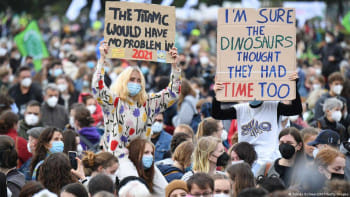


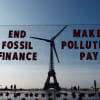


Comments